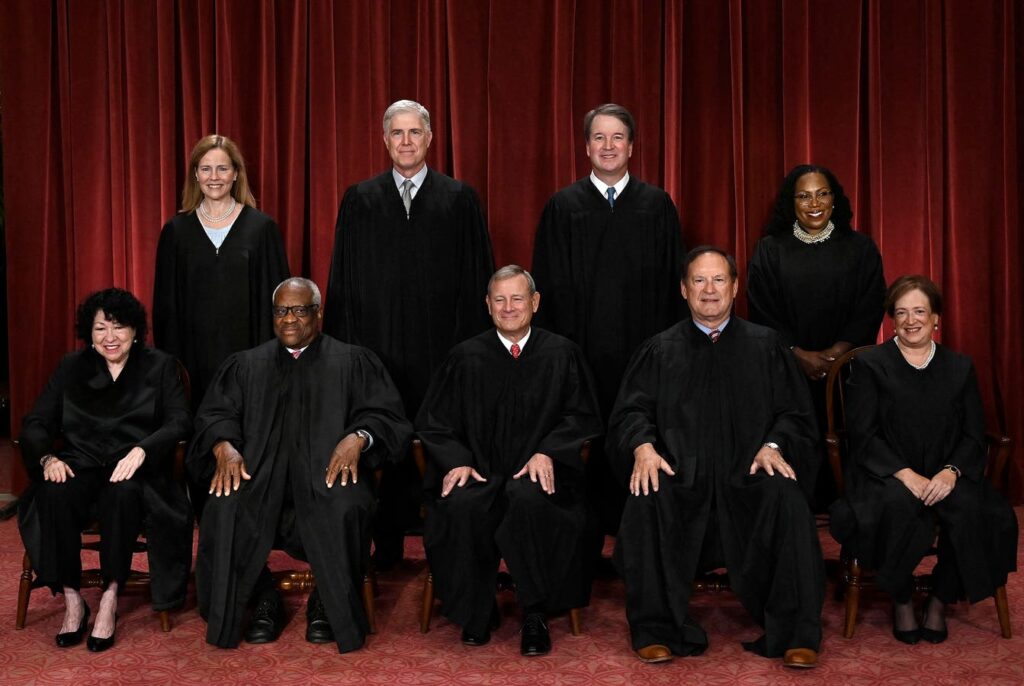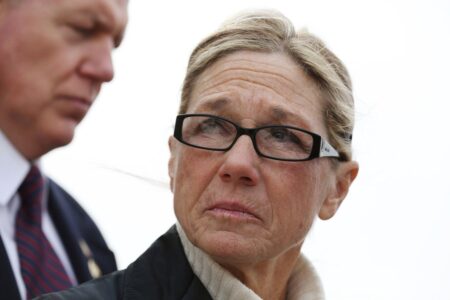Months ago, I advised that the Corporate Transparency Act (CTA) could be headed to the U.S. Supreme Court. The first bite at that apple happened this week.
On December 31, 2024, the Department of Justice filed an application with the nation’s highest court in an effort to put the brakes on the nationwide preliminary injunction that had barred the government from enforcing beneficial ownership information (BOI) reporting. If the DOJ’s request is granted, the government can enforce the CTA while appeals make their way through the system.
In the application for a stay of the injunction, the government argued that the Court “has traditionally applied a strong presumption that “Acts of Congress * * * should remain in effect pending a final decision on the merits by this Court.” If that sounds familiar, it’s similar to arguments the DOJ made to the Fifth Circuit which initially granted the government’s request to stay the injunction.
(A stay is a court order that stops a legal proceeding—it’s usually temporary.)
Days later, however, a separate Fifth Circuit panel vacated the stay, blocking enforcement. The whiplash maneuvers confused business owners and advisors—the uncertainty has caused significant grief during the holiday season.
How We Got Here
In Texas Top Cop Shop, Inc., et al. v. Garland, et al., U.S. District Court Judge Mazzant from the Eastern District of Texas granted the request of the National Federation of Independent Business (NFIB) for a preliminary injunction, blocking the U.S. Department of Treasury from enforcing the CTA’s reporting requirements. Because NFIB and its nearly 300,000 members were a party to this case, the judge blocked enforcement of the BOI reporting requirements nationwide.
(Remember, a preliminary injunction—and any ruling related to the preliminary injunction—is not a final resolution of a case.)
On December 17, on appeal, Mazzant ruled that a nationwide preliminary injunction barring FinCEN from enforcing the CTA would stand.
The government appealed the matter to the Fifth Circuit. Noting that the preliminary injunction barred the Financial Crimes Enforcement Network (FinCEN) from enforcing the CTA was nationwide, the government wrote, “the balance of harms tips sharply in favor of the government and any injunction in any event should have been limited to the handful of companies who identified themselves before the district court.”
In a December 23 ruling, a Fifth Circuit panel granted the government’s emergency motion for a stay pending the appeal. In its decision, Circuit Judges Stewart, Haynes, and Higginson poked holes at the district court ruling, writing, “Independently, the government has made a strong showing against the Businesses’ facial challenge to the CTA.”
That means, the court wrote, “Here, the CTA at least operates constitutionally when it requires that corporations engaged in business operations affecting interstate commerce disclose their beneficial owner and applicant information to [FinCEN],” before concluding, “Thus, the statute is likely constitutional on its face.”
The reversal initially meant that businesses required to file BOI reports were required to file while the government’s appeal of the underlying suit was pending unless they are otherwise exempt. In response to the December 23 ruling, FinCEN posted a message on its website just before the Christmas holiday, extending the reporting deadline.
(The deadline for most reporting companies created before January 1, 2024, was January 1, 2025. That deadline was then pushed by FinCEN to January 13, 2025.)
On December 26, a different Fifth Circuit panel issued a ruling finding that “in order to preserve the constitutional status quo while the merits panel considers the parties’ weighty substantive arguments, that part of the motions-panel order granting the Government’s motion to stay the district court’s preliminary injunction enjoining enforcement of the CTA and the Reporting Rule is VACATED.”
What that means is that the part of the ruling that stayed the injunction has been removed—the injunction is now back in play.
On Friday, December 27, FinCEN updated its website to note: In light of a recent federal court order, reporting companies are not currently required to file beneficial ownership information with FinCEN and are not subject to liability if they fail to do so while the order remains in force. However, reporting companies may continue to voluntarily submit beneficial ownership information reports. (Emphasis added.)
A Quick Note About Other Fifth Circuit Actions
Just before the December 26 ruling, NFIB and the other plaintiffs involved in the suit requested a rehearing en banc. As a result, the court expedited the proceedings and requested that the government file a response by noon on December 31, 2024. Following the order vacating the stay, that petition was withdrawn since the matter was moot.
(En banc is French—surprisingly, not Latin—for on the bench. It means that all judges of a particular court will hear a case. This happens when a matter is particularly complex or important.)
As part of that ruling, the court explained that the appeal has been expedited to the next available oral argument panel. Oral arguments are now calendared for March 25, 2025.
Other Court Rulings
The Top Shop case isn’t the only case pending in the courts.
Earlier this year, U.S. District Judge Liles C. Burke of the Northern District of Alabama, Northeastern Division, found the CTA unconstitutional “because it exceeds the Constitution’s limits on Congress’ power.” The Alabama ruling resulted from a lawsuit filed by the National Small Business United (also known as the National Small Business Association, or NSBA) and Isaac Winkles, and bars the U.S. Treasury from enforcing the CTA against the Plaintiffs—members of the NSBA—but does not enjoin enforcement against others. The federal government has since appealed the case. Oral arguments were heard in October of 2024.
In addition to National Small Business United v. Yellen, two other courts—the United States Court of Appeals for the Fourth Circuit and the United States Court of Appeals for the Ninth Circuit—also have CTA case appeals on their dockets.
Where We Are Now
The government is specifically asking the Supreme Court to stay the district court’s injunction in full while the matter is appealed—that would mean that BOI reporting would be required precisely as it was before the original injunction was issued.
As an alternative, while referring to the injunction as “vastly overbroad,” the government requested that “the injunction should be stayed except to the extent it protects respondents and the members of NFIB identified in the complaint.”
The government also suggested that the Supreme Court “may wish to treat the application as a petition for a writ of certiorari before judgment on the question whether the district court lacked authority to enter a universal injunction, grant the petition, and set the remedial question for argument this Term.”
Procedurally, a party seeking to be heard on an appeal from a lower court decision—like this one—must file a writ of certiorari. Certiorari is Latin (remember, lawyers love Latin), which means “to be more fully informed.”
If the Supreme Court decides to hear the matter, it’s called a grant of certiorari—by practice, at least four justices must vote to hear the case to be granted cert. Usually, cert is granted in a case of considerable importance or involving a circuit split. Here, the government suggests that certiorari would be proper since the lower court held an act of Congress unconstitutional.
The error the government is flagging is tied to the original injunction which applies nationwide. Whether the district court has that power, the government argued, is not settled, writing, “the issue whether district courts may award universal relief has evaded this Court’s review.”
The U.S. Supreme Court does not have to agree to hear the matter or answer the government’s application. However, if the justices agree to grant certiorari, the case could become much bigger than the CTA—and could have massive implications for future lawsuits challenging federal laws.
Read the full article here

















